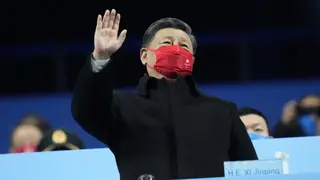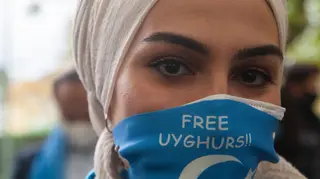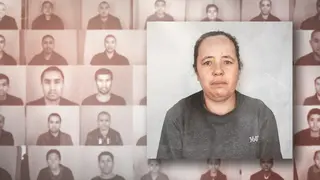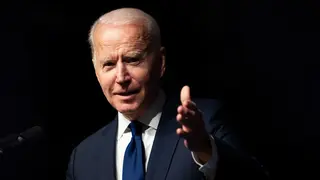A fifth of your cotton laundry comes from a forced labor region, says an expert
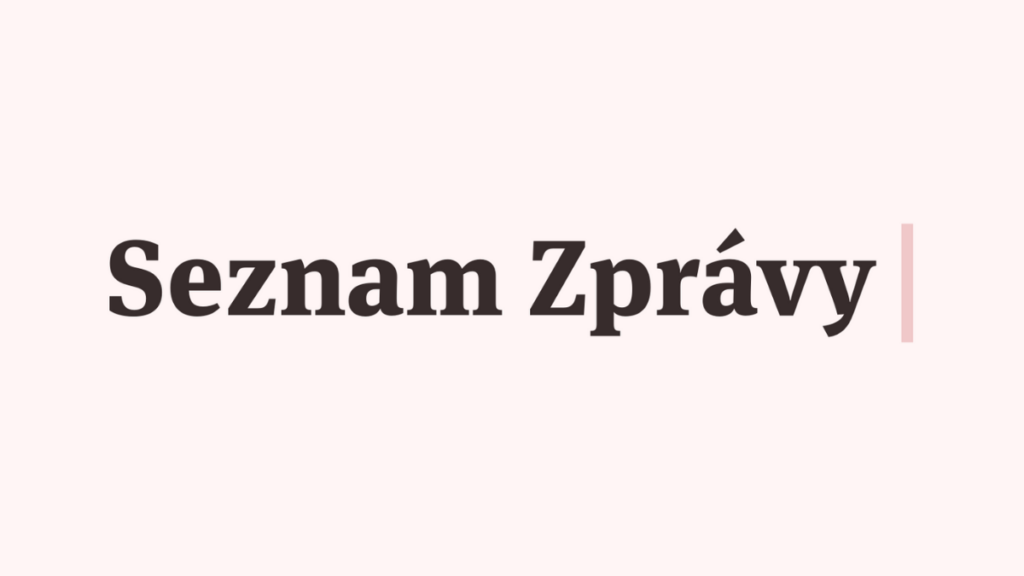
May 28, 2023 | Seznam Zprávy | By Tereza Ulrychová
[English translation provided by Google Translate. Original title: Pětina vašeho bavlněného prádla je z regionu nucených prací, říká expertka]Forced labor is one of the main tools of the Uyghur genocide, Louisa Greve tells Seznam Zpravá. The human rights expert believes that the sanctions against Russia show that it is worthwhile for Europe to impose sanctions on China as soon as possible.
Report after report demonstrates the injustice that the Uyghurs are experiencing in China. Members of this predominantly Muslim ethnic group live in the Xinjiang region, and the Communist Party targets them with campaigns of mass detention, surveillance and forced labor. Evidence of forced sterilizations, torture and rape is also increasing.
Given that China is one of the world’s largest exporters and a number of global companies do business in the country, the issue of Uyghur forced labor comes to the fore. The request by US lawmakers for details on the supply chains of companies such as Nike, Adidas or Shein is still fresh . Whether they too are dying from the slave labor of ethnicity.
“There’s a 1 in 5 chance that any cotton you wear or the sheets you sleep on could easily come from a region where genocide is taking place and where every adult, if Uyghur, is subjected to forced labour,” says Louisa Greve, director of global advocacy at the Uyghur Human Rights Project.
In an interview for Seznam Zprávy, he discusses which sectors are most associated with forced labor. Or whether it is realistic that the western powers of China will emphatically “chop” across the fingers for the exploitation of the Uyghurs.
You came to Prague to talk about state-supported forced labor in China. Can you tell our readers how big a problem this is?
Unfortunately, this is something that affects every Uyghur family. Authorities in the Xinjiang region have an explicit government policy on who can work where. A few years ago, it was a work plan, according to which every family had to have at least one working member. This affected, for example, those who ran a business and thus did not have a job within state institutions. It was already strange enough and clearly undemocratic.
In 2019, two-and-a-half years after the appointment of Chen Quanguo, the government secretary of the region, a new policy came out, according to which every adult must work in a government-assigned position. Either the people there are retired, disabled, or at work. They have no choice, for example they cannot start their own business and mothers cannot stay at home with their children.
To facilitate this set-up, the government has announced that each area should ensure that there are so-called satellite factories and childcare facilities in it – especially near places where people live.
According to the International Labor Organization ( ILO ), involuntary assignment to a workplace is forced labor. Moreover, the problem affects all adults in the Xinjiang Uyghur Autonomous Region, home to 11 million Uyghurs, according to government estimates. By the way, they don’t believe this number is accurate and think the government is underestimating the population.
What did we ask Louisa Greve next?
- Would the public be able to accept the sanctions imposed on China at a time when the world’s economies are suffering from the sanctions imposed on Russia?
- How have the US and Europe responded to the forced labor situation so far?
- Are the Uyghurs and their problems getting more attention now than years ago?
What do the Uyghurs in the Xinjiang region actually produce? In which sectors can we come across products whose production they participated in?
I’m sorry to say it, but it’s a lot of industries. If you look at the map, you will find that the Uyghur homeland is a landlocked area. Among the world’s provincial-level capitals, its capital Urumqi is the farthest from the ocean. At the same time, however, this area is closely connected to global supply chains.
In terms of exact industries, we know for example that 80-90% of China’s cotton is produced here. The calculations then show that this is about 20% of the world’s cotton, which means that with a 1 in 5 chance, any cotton you wear or the sheets you sleep on could easily come from a region where genocide is taking place and where every adult, if Uyghur, subjected to forced labor.
Of course, it is also about other products, such as masks that we all wore during the pandemic, tomatoes, aluminum or polyvinyl chloride, which is also known as PVC and is used for so-called luxury vinyl floors. The entire supply chain of the automotive industry is also connected with suppliers from Xinjiang. The factories approved by the government there sell to all major brands in the world: BMW, Volkswagen, Škoda and others.
China is a major exporter to the whole world, so many supply chains – whether at the level of raw materials, parts or finished products – originate in China, and many of them are connected to the Uyghur region.
So we can say that it is a really widespread phenomenon. Would it be a big blow to China if these products were pulled from the European and American markets?
No one wants to harm the welfare of Chinese citizens. For those campaigning against forced labour, it is really about promoting the very basic principles of European values and the principles of the United Nations Universal Declaration of Human Rights. But when it comes to the impact on the Chinese economy, we have to separate the interests of the people from the interests of the state.
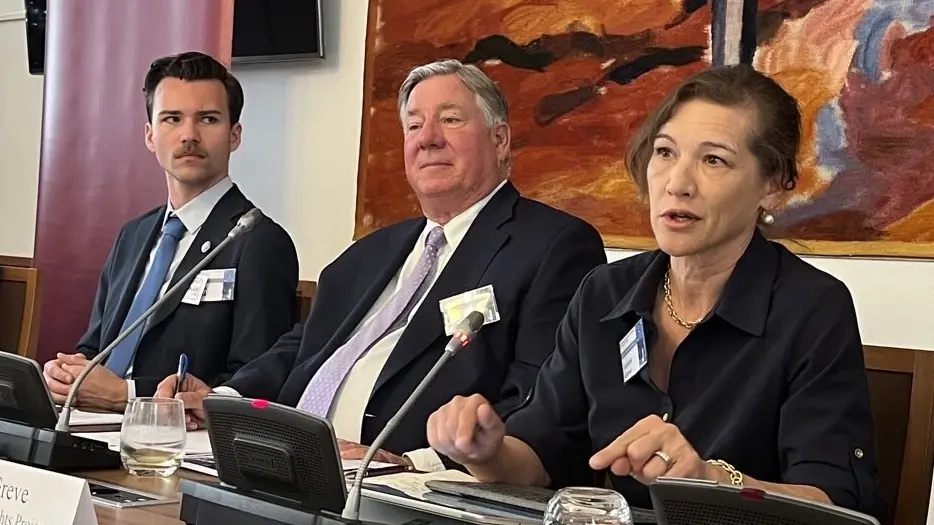
If you were to apply real import measures to workers who create products for import into Europe and follow the same laws that apply to workers and employer obligations across Europe, it would have a big impact just because of the relatively recent development of all global supply chain chains extending into the Uyghur region.
Some businesses fear that it would complicate the search for new alternative sources and that it could mean an increase in costs for them. But I don’t want to believe that anyone today with a straight face could claim that finding alternative sources is too much of a problem and will happily continue working without examining whether their business model is based on human enslavement in the 21st century.
China conquers the world by borrowing money
It seems that once a country is saddled with Chinese loans, it becomes an unfortunate gambler. A Beijing puppet that is in danger of losing a limb. And that Sri Lanka did not exactly borrow a little Chinese money.
But the effects of the bans or sanctions you call for would not necessarily be accepted by the public. After all, people are already dissatisfied with the way the world economies have been affected by the sanctions imposed on Russia.
It can be painful for politicians to ensure a good standard of living for citizens, which is the responsibility of both policy makers and those responsible for economic regulation and trade policy. But first of all, politicians should explain to their voters that if you are a member of the ILO, you are committed to complying with basic labor standards that do not tolerate forced labor.
Trafficking in sex, labor or child labor are crimes and I don’t believe that any European citizen, consumer group or business person asks why their country can’t use child labor directly or import things that were in other countries made using child labor when it’s actually cheaper. No, they would say there is no such possibility.
Accurate risk pricing is necessary in trading models and all risks are a natural principle of how trading is done. However, many of the world’s economic decisions did not calculate the risk that Russian aggression will turn into an international crime of aggression on the territory of another country, despite the fact that we were warned by the events in Crimea.
The Uyghurs
For years, the People’s Republic of China has been accused of imprisoning hundreds of thousands to millions of ethnic minorities in camps in the western Xinjiang autonomous region.
- Read an interview with a Uyghur woman about life in China here:
- A BBC investigative report revealing the specific faces of victims of Chinese re-education can be found here:
So what is the solution?
How Europe was hit is a lesson. If it had a more diversified energy strategy, this blow to economies and people’s living standards would be less. I would say China is next in line: they are openly talking about the need to get Taiwan and start a war in Asia. Global supply chains will clearly have an impact as well. Sanctions should be introduced now, because the sooner the better.
Human rights defenders are convinced that they will be able to convince the decision-makers to take such a step. It is important for every politician to prepare by, for example, giving advice to entrepreneurs and, if possible, taking measures to ensure that trade in the country is not so dependent on the import of products that are proven to have been produced by forced labor supported by the state.
It is the duty of politicians to explain to the people that the kind of economic pain they are experiencing or will experience can be reduced by diversifying supply and finding alternative sources, which should happen sooner rather than later. As soon as possible actually.
And how has the US, for example, reacted to the situation regarding forced labor so far? Are the measures implemented by them working?
In the USA, the law has been in force since 1930, but compliance with it was little enforced and required by complaints from the outside. So there was no proactive government investigation, and unions or labor rights groups usually had to get involved. However, it says you can’t bring anything into the US that was grown or made with child labor, convict labor, or forced labor.
The change came only in 2015, when a loophole under which individual cases often fell was removed from the law, according to which this ban applied when market conditions did not make it difficult to find an alternative. It’s sad that it took so long though.
In 2020, a special law called the Uyghur Forced Labor Prevention Act ( UFLPA ) was enacted, which establishes a “rebuttable presumption” whereby imported products associated with the Xinjiang region are presumed to have been produced by forced labor unless the importer can present a clear and convincing evidence that this is not the case. In the first eight months since its introduction, the law stopped the import of products worth more than 900 million dollars.
The US and forced labor issues
Joe Biden’s administration promised its voters that it would decarbonize the US economy. However, the plan may disrupt US reliance on Chinese solar panel components.
In essence, the United States has at least somehow succeeded, but it is not enough. For example, American groups fighting for workers’ rights, against human trafficking or against slavery are constantly calling for better data. U.S. Customs only publishes data on ship shipments, but nothing on air, truck, or rail shipments from Canada and Mexico. So there are huge gaps in monitoring and analyzing what is happening with imports.
And Europe?
Europe has no effective measures today. However, it cannot rely on the fact that the work that should be done by individual enterprises will be done for them by someone else. Businesses need to know the conditions in all areas with which they are connected, not just those related to their home countries.
Governments cannot prosecute European businesses for violating human rights or labor standards abroad. The European Commission has therefore decided that it must introduce a new law. But his proposal falls short of really addressing what is needed, or what a truly responsible business should do.
Europe and forced labour
According to Greve, Europe has no effective ban, although there are some restrictions, because most governments and companies obviously don’t want to have a damaged reputation. According to the expert, Europe should take note that China is not only a problem for the USA, but also for originally European brands such as BMW , Audi , Adidas or IKEA .
For example, in early May, the German company Volkswagen received unwanted attention when its shareholders’ meeting was interrupted by activists protesting the carmaker’s presence in Xinjiang, China.
Why do you think no further action has been taken? Is it all about the money?
Yes. In the modern world, it is businesses that create economic results, so people rely on responsible business and entrepreneurship. Human rights groups would never demand that governments ignore their country’s ability to do business and stifle business activity. But the question is what is free and fair in a market where parts of supply chains depend on enslaving others.
Of course, we understand that governments are tired and dealing with Russian sanctions. But if they postpone the issue, it will be more painful for their businesses and leave a much bigger stain on the reputation of their countries and their business community.
Finally, I would like to ask you about the situation of the Uyghurs today. Would you say that they and their issues are getting more attention now than years ago? And does their situation change for the better as a result?
My organization, the Uyghur Human Rights Project, has been publishing reports on the situation of the Uyghurs for about 17 or 18 years. However, very few people read these messages. Nevertheless, we were active and protested against discrimination, land expropriation and the assassination of political leaders. People who emigrated or were forced to flee and now live in exile, then developed great activity outside of China so that the suffering of their people would not be forgotten.
In such a busy world it is difficult to attract attention, and for example in 2016 and 2017, when the mass exodus began, a number of journalists were fired from China for reporting on the situation there that did not fit the Chinese propaganda created by the government there.
It should have gotten more attention at the time, but by the turn of 2017 and 2018, anyone who called themselves an expert on China, or anyone who was interested in international affairs, was well aware that there were some truly horrific crimes taking place in China and violation of human rights.
About the practices of China
Expulsion from school, beatings, death threats for him, rape for his mother. Media bullying, revenge on acquaintances and now the perfect “trap” and the threat of prison. This can happen when someone lies in China’s stomach for too long.
In the 21st century, everyone should know about it, and more attention should be paid to the Uyghur crisis. There are Uyghurs who speak all the world’s languages and can be found in many countries of the world. They integrate into host countries, but are still considered exiles because they cannot return home. If they returned home, they would be arrested.
They are going through something that Czechoslovakia also experienced during the communist regime. Czechs know the tactics of the regime, which exerts pressure on its citizens even when it does not arrest, torture or execute anyone. Like them then, Uyghurs around the world today suffer from survivor syndrome because of the families they left behind in China.
At the conference, you mentioned the need to think about trauma care for Uyghurs. So people are not very interested in this topic yet?
Several Uyghur groups cooperate in this spirit on a voluntary basis. They’re trying to create some awareness and let Uyghurs know that there is a name for what they’re feeling—trauma, stress, grief, unresolved grief, or even long-term unresolved grief. They help them understand that all this has a long-term effect on their health, on their family relationships and on their ability to function.
But we don’t call this process healing, because how can you recover from something like that? They say that grief is a lifelong experience. In this case, however, it is still unresolved because people, for example, do not know what happened to their family members and have nightmares about being tortured or raped in prisons.
[Read the original article: https://www.seznamzpravy.cz/clanek/zahranicni-petina-vaseho-bavlneneho-pradla-je-z-regionu-nucenych-praci-rika-expertka-231122]
